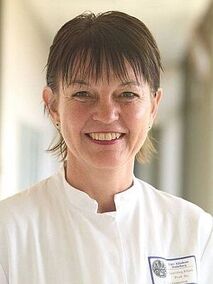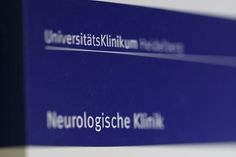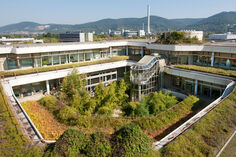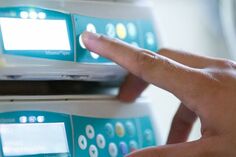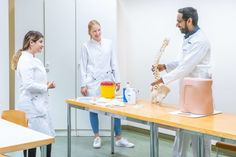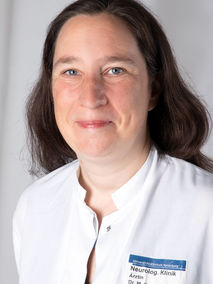-
Molecular Neuroimmunology Group | AG Molekulare Neuroimmunologie
- About us | Über uns
- DONATIONS | SPENDENKONTO
- Staff | Mitarbeiter
- Clincial studies | Klinische Studien
- Multiple sclerosis | Multiple Sklerose
- MOG antibody-associated disease (MOGAD) | MOG-Enzephalomyelitis (MOG-EM)
- Neuromyelitis optica spectrum disorders (NMOSD) / Neuromyelitis-optica-Spektrum-Erkrankungen
- Autoimmune encephalitis and paraneoplastic neurological syndromes / Autoimmunenzephalitiden und paraneoplastische neurologische Syndrome
- COVID-19/SARS-CoV-2 and Post-/Long-COVID | COVID-19/SARS-CoV-2 und Post-/Long-COVID
- Baló's concentric sclerosis (BCS) / Konzentrische Sklerose Baló
- Schilder's myelinoclastic diffuse sclerosis (MDS) | Myelinoklastische diffuse Sklerose (Morbus Schilder)
- History of neuroscience | Geschichte der Neurowissenschaften
- Immunoneuropathies
- Other research topics | Sonstige Forschungsschwerpunkte
- Neuroinflammation & Degeneration
- DFG Forschergruppe 2289
- Neuroinfectiology
Molecular Neuroimmunology Group | AG Molekulare Neuroimmunologie
About us | Über uns
General information | Allgemeines
The scientific focus of our working group is on the autoimmune pathogenesis of multiple sclerosis, neuromyelitis optica spectrum disorders (NMOSD) and myelin oligodendrocyte glycoprotein (MOG) antibodies-associated encephalomyelitis (MOG-EM, also called MOGAD) and, in close cooperation with the CSF laboratory, on the optimisation of the range of CSF analytical methods for the diagnosis of inflammatory and oncological diseases of the nervous system. As member the Multiple Sclerosis Competence Network, established as an initiative of the German Federal Ministry of Education and Research, we closely cooperate with with other MS centres. Affiliated to the Molecular Neuroimmunology Unit is the oupatient clinic for neuroimmunology, dedicated to the diagnosis and treatment of patients with multiple sclerosis, NMOSD, MOG-EM/MOGAD, myasthenia gravis, autoimmune encephalitis, autoimmune ataxia, and immune neuropathies as well as of patients with neuromanifestations in systemic autoimmune diseases and HIV/AIDS. Our working group also coordinates national and international multi-centre studies on the treatment of multiple sclerosis and other neuroimmunological diseases.
_______
Wissenschaftliche Schwerpunkte der Arbeitsgruppe (AG) sind die Autoimmunpathogenese der Multiplen Sklerose, der Neuromyelitis- optica-Spektrum-Erkrankungen (NMOSD) und der MOG-Enzephalomyelitis (MOG-EM; engl. myelin oligodendrocyte glycoprotein antibody-associated disorders, MOGAD) sowie in enger Zusammenarbeit mit dem Liquorlabor die Optimierung des liquoranalytischen Methodenspektrums für die Diagnostik entzündlicher und onkologischer Erkrankungen des Nervensystems. Innerhalb des als Initiative des Bundesministeriums für Bildung und Forschung etablierten Krankheitsbezogenen Kompetenznetzwerkes Multiple Sklerose (KKNMS) bestehen national enge Kooperationen mit anderen MS-Zentren. An die AG Molekulare Neuroimmunologie angegliedert ist die Spezialsprechstunde für Neuroimmunologie, in der Patienten mit Multipler Sklerose, NMOSD, MOG-EM/MOGAD, Myasthenia gravis, Autoimmunenzephalitis, Autoimmunataxien und Immunneuropathien betreut werden sowie auch Patienten mit Neuromanifestationen bei systemischen Autoimmunerkrankungen und HIV/AIDS. Über die Arbeitsgruppe werden außerdem nationale und internationale Multizenterstudien zur Therapie der Multiplen Sklerose und anderer neuroimmunologischer Erkrankungen koordiniert
Ranking
Members of the Molecular Neuroimmunology working group (Sven Jarius, Brigitte Wildemann) have topped the list of leading international experts on transverse myelitis (inflammation of the spinal cord) in a ranking* by the US internet portal ExpertScape. They were ranked by ExpertScape as number 1 and number 4, respectively, in a Europe-wide ranking and number 3 and number 12, respectively, in a worldwide ranking, taking into account a total of 7951 researchers from 85 countries who have published on this disease in PubMed-indexed scientific journals over the last 10 years.
In addition, they are also ranked by ExpertScape as the 1st and 4th leading experts in Europe and the 3rd and 12th leading experts in optic neuritis (inflammation of the optic nerve) worldwide, respectively, in a ranking of 10,241 scientists.
Finally, they were also counted by the web portal among the world's leading experts on neuromyelitis optica spectrum disorders (NMOSD, Devic's disease). In the Europe-wide ranking, they occupied the top positions 1 and 4, and in the worldwide ranking of 6382 scientists, they occupied positions 3 and 12.
In the categories autoimmune diseases and demyelinating diseases of the CNS, they were among the "0.1% top experts worldwide" in the reference period 2008-2019, according to ExpertScape calculations, and in the fields of multiple sclerosis, ataxia and paraneoplastic diseases of the nervous system they were among the "1% top experts worldwide".
*ExpertScape ranking scores, according to the publisher, are based on the number of scientific publications in the last 10 years, the year of publication, the type of publication (guidelines and review articles count more than letters to the editor), a weighting subscore for the quality of the journals in which the work appeared, and the author position (first authorships count more than second authorships). The authors or their institutions have no influence on the ranking. As of April 2019.
Essential Science Indicators℠: Publications from our group have repeatedly been recognised as "Top 1%" publications in the category "Neuroscience & Behaviour".
________
Mitarbeiter der AG Molekulare Neuroimmunologie (S. Jarius, B. Wildemann) stehen in einem Ranking* des US-amerikanischen Internetportals ExpertScape an der Spitze der Liste der international führenden Experten zur transversen Myelitis (Rückenmarksentzündung). Sie werden von ExpertScape auf Platz 1 bzw. Platz 4 in einem europaweiten Ranking und auf Platz 3 bzw. Platz 12 in einem weltweiten Ranking unter Berücksichtigung von insgesamt 7951 Forschern aus 85 Ländern, die in den letzten 10 Jahren zu dieser Erkrankung in PubMed-indizierten wissenschaftlichen Journalen publiziert haben, geführt.
Darüber hinaus werden sie von ExpertScape auch auf Platz 1 bzw. Platz 4 der europaweit führenden Experten und auf Platz 3 bzw. 12 der weltweit führenden Experten für Optikusneuritis (Sehnerventzündung) geführt in einem Ranking von 10.241 Wissenschaftlern.
Schließlich werden von sie von dem Webportal auch als weltweit führende Experten für Neuromyelitis optica-Spektrumerkrankungen (Devic-Erkrankung, Morbus Devic) geführt. Im europaweiten Ranking belegten Sie die Spitzenplätze 1 und 4 und im weltweiten Ranking von 6382 Wissenschaftlern die Plätze 3 und 12.
In den Kategorien Autoimmunerkrankungen und demyelinisierende Erkrankungen des ZNS zählten sie im Bezugszeitraum 2008-2019 nach Berechnungen von ExpertScape zu den „0.1% Top-Experten weltweit“ und in den Bereichen Multiple Sklerose, Ataxie and Paraneoplastische Erkrankungen des Nervensystems zu den „1% Top-Experten weltweit“.
*ExpertScape-Ranking-Scores basieren nach Angaben des Internetportals auf der Zahl der wissenschaftlichen Publikationen in den letzten 10 Jahren, dem Jahr der Publikation, der Art der Veröffentlichung (Leitlinien und Übersichtsartikel zählen mehr als Leserbriefe), einem Wichtungssubscore für die Qualität der Journale, in denen die Arbeit erschienen ist, und der Autorenposition (Erstautorenschaften zählen mehr als Zweitautorenschaften). Die Autoren oder deren Institutionen haben keinen Einfluss auf das Ranking. Stand April 2019.
Essential Science Indicators℠: Publikationen unserer Gruppe wurden wiederholt als “Top 1%”-Veröffentlichungen in der Kategorie „Neuroscience & Behaviour“ ausgezeichnet.
Arbeitsgruppenleiterin
Wiss. Mitarbeiter/-innen
Technische Assistenten/-innen
-

Silvia Zacharevics
Research topics | Forschungsschwerpunkte
Neuromyelitis optica spectrum disorders (NMOSD)
MOG encephalomyelitis (MOG-EM; also termed MOG antibody-associated disease, MOGAD)
Paraneoplastic and other autoantibody-associated disorders
Neuro-COVID-19 und Neuro-Post-COVID/Long-COVID
Balós concentric sclerosis (BCS)
Schilder's myelinoklastische diffuse Sklerose (Morbus Schilder, MDS)
Multifocal motor neuropathy and chronic-inflammatory demyelinating polyneuropathy
Neoplasms of the central nervous system
___________________
Neuromyelitis optica (NMO, Devic-Syndrom)
MOG-Enzephalomyelitis (MOG-EM)
Paraneoplastische und sonstige Autoantikörper-assoziierte Erkrankungen
Neuro-COVID-19 und Neuro-Post-COVID/Long-COVID
Balós konzentrische Sklerose (Morbus Baló, BCS)
Schilders myelinoklastische diffuse Sklerose (Morbus Schilder, MDS)
Geschichte der Neurowissenschaften
Multifokale motorische Neuropathie und chronisch-inflammatorische demyelinisierende Polyneuropathie
Neoplasien des Zentralnervensystems
Collaborators | Kooperationspartner
Klinik und Poliklinik für Neurologie, Universitätsklinikum Münster (PD Dr. Lisa Klotz, Prof. Dr. Heinz Wiendl)
Neurologische Klinik, Technische Universität München (Prof. Dr. Bernhard Hemmer, Prof. Dr. Achim Berthele)
Klinik für Neurologie, Heinrich Heine Universität Düsseldorf (Prof. Dr. Orhan Aktas, Prof. Dr. Bernd Kieseier, Prof. Dr. H.P. Hartung)
Institut für klinische Neuroimmunologie, Ludwig-Maximilians-Universität München (Prof. Dr. Tania Kümpfel, Prof. Dr. Reinhard Hohlfeld)
Klinische Neuroimmunologie, NeuroCure Exzellenzcluster, Berlin (Prof. Dr. Friedemann Paul)
Klinik für Neurologie, Charité - Universitätsmedizin Berlin (Dr. Klemens Ruprecht)
Institut für Neuropathologie, Universitätsmedizin Göttingen (Prof. Dr. Wolfgang Brück, PD Dr. Imke Metz)
Department of Neurology, Mayo Clinic, Rochester, MN (Prof. Brian Weinshenker, MD)
Department of Neurology, Mayo Clinic, Scottsdale, AZ (Prof. Dean Wingerchuk, MD)
Institute of Experimental Immunology, Euroimmun AG, Luebeck (Dr. Kai Fechner, Dr. Lars Komorowski, Prof. Winfried Stöcker)
Hautklinik, Universitätsmedizin Mainz (PD Dr. Helmut Jonuleit)
Abteilung Neuropädiatrie, Universitätsmedizin Göttingen (Prof. Dr. Jutta Gärtner, PD Dr. Peter Huppke)
Neurologische Klinik und Zentrum für klinische Forschung I, Ruhr-Universität Bochum (Prof. Dr. Ingo Kleiter)
Pädiatrische Neurologie, Universitätsklinikum Heidelberg (Dr. Cornelia Bussmann)
Brigham and Women`s Hospital, Harvard Medical School, Center for Neurologic Diseases, Boston, USA (Dr. Felipe von Glehn, Weiner laboratory)
Kompetenznetz Multiple Sklerose
Funding | Fördermittel
- BMBF: 01GI0909 - KN-MS, Research Alliance “Understand MS”, AII, “Functional analysis of regulatory T-cells in patients with multiple sclerosis”
- Dietmar-Hopp-Stiftung: Multiple Sklerose bei Kindern und Erwachsenen: Fehldiagnosen und Fehlbehandlung verhindern!
- Dietmar-Hopp-Stiftung: „Neuromyelitis optica: Verhinderung schwerster Behinderung durch frühe und sichere Diagnosestellung“ (Projekt Nr. 23011211)
- Gemeinnützige Hertie-Stiftung: „Calcium signaling in T cells: implications for peripheral immune tolerance in patients with multiple sclerosis.” (1.01.1/08/015)
- Deutsche José Carreras Leukämie-Stiftung e.V.: „Chemokin-gesteuerte Transmigration regulatorischer T-Zellen ins ZNS von Patienten mit B-Zell Non Hodgkin Lymphomen“ (06/19v)
- “Young Investigator Award” der Medizinischen Fakultät der Universität Heidelberg für A. Schwarz
- “Young Investigator Award” der Medizinischen Fakultät der Universität Heidelberg für B. Fritzsching
- Gemeinnützige Hertie-Stiftung: „Regulatory T-Cells: Key Mediators of Autoimmunity in Multiple Sclerosis?“ (1.319.110/01/11 and 1.01.1/04/003)
- Industriemittel
Clinical study groups | Klinische Verbundprojekte
KKNMS - Krankheitsbezogenes Kompetenznetz Multiple Sklerose - http://www.kompetenznetz-multiplesklerose.de/
NEMOS – Neuromyelitis Optica Study Group - http://www.nemos-net.de/
EUSAC – European Susac Study Group - http://www.eusac.net/
FOR2289 - Forschergruppe 2289: Kalzium-Homöostase bei Neuroinflammation und -degeneration - http://www.for2289.de
DGLN – Deutsche Gesellschaft für Liquordiagnostik und Klinische Neurochemie - http://www.dgln.de/
[Letzte Änderung 04.05.2021]
-
Molecular Neuroimmunology Group | AG Molekulare Neuroimmunologie
- About us | Über uns
- DONATIONS | SPENDENKONTO
- Staff | Mitarbeiter
- Clincial studies | Klinische Studien
- Multiple sclerosis | Multiple Sklerose
- MOG antibody-associated disease (MOGAD) | MOG-Enzephalomyelitis (MOG-EM)
- Neuromyelitis optica spectrum disorders (NMOSD) / Neuromyelitis-optica-Spektrum-Erkrankungen
- Autoimmune encephalitis and paraneoplastic neurological syndromes / Autoimmunenzephalitiden und paraneoplastische neurologische Syndrome
- COVID-19/SARS-CoV-2 and Post-/Long-COVID | COVID-19/SARS-CoV-2 und Post-/Long-COVID
- Baló's concentric sclerosis (BCS) / Konzentrische Sklerose Baló
- Schilder's myelinoclastic diffuse sclerosis (MDS) | Myelinoklastische diffuse Sklerose (Morbus Schilder)
- History of neuroscience | Geschichte der Neurowissenschaften
- Immunoneuropathies
- Other research topics | Sonstige Forschungsschwerpunkte
- Neuroinflammation & Degeneration
- DFG Forschergruppe 2289
- Neuroinfectiology
Arbeitsgruppenleiterin
